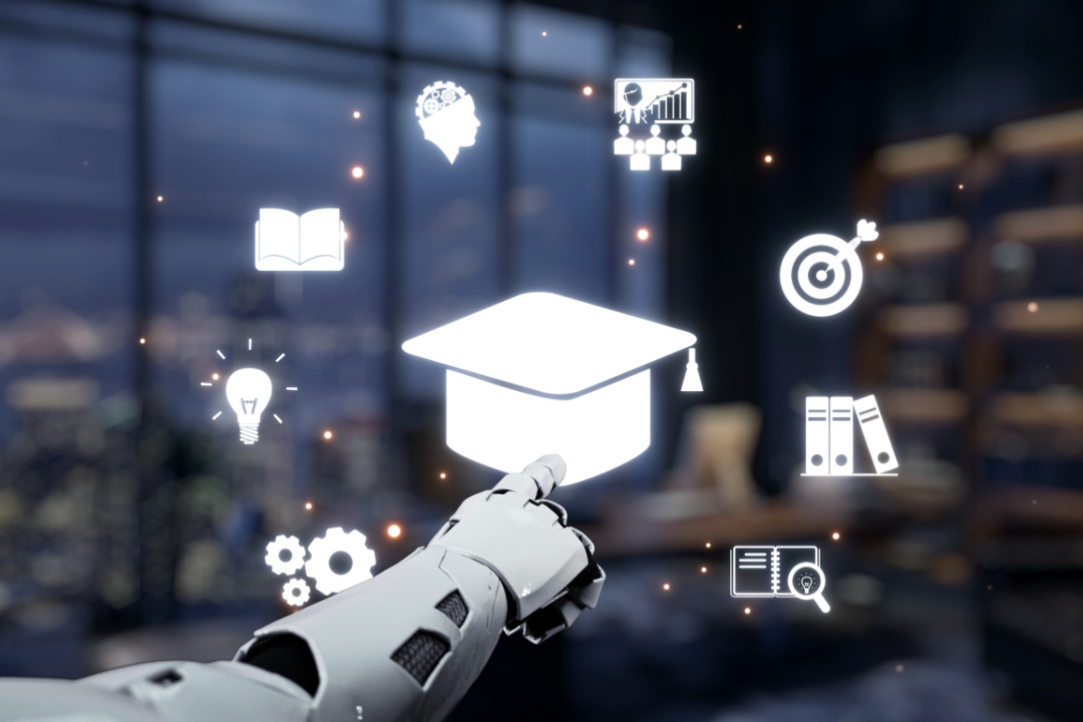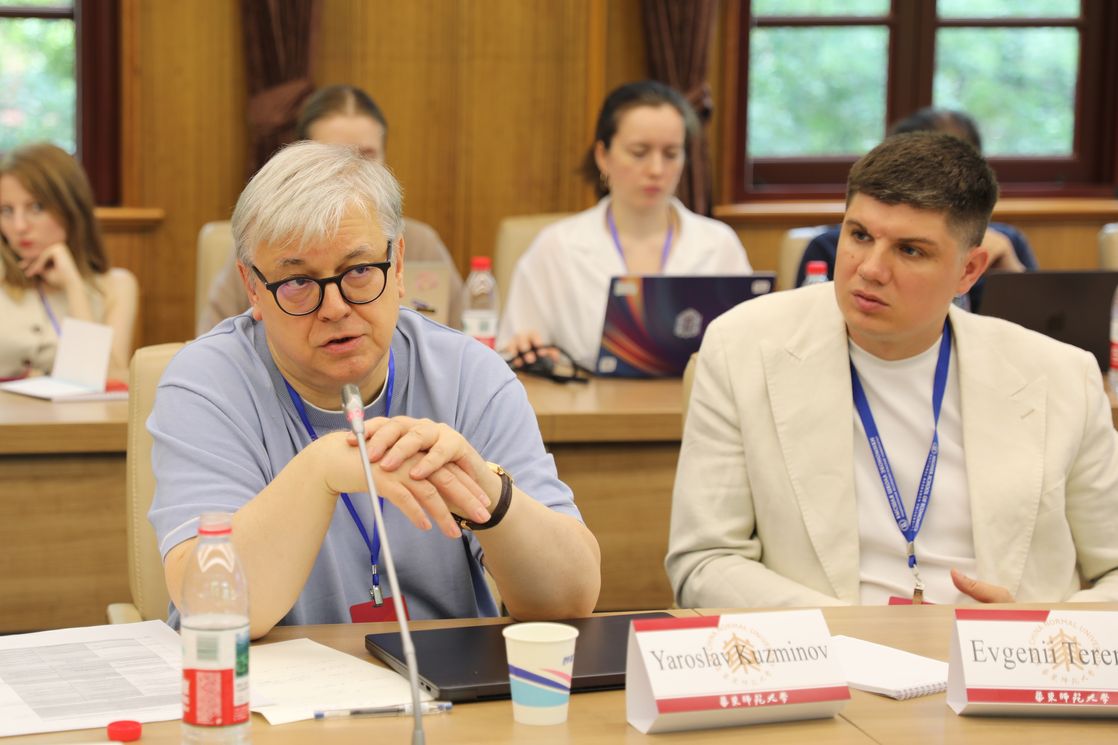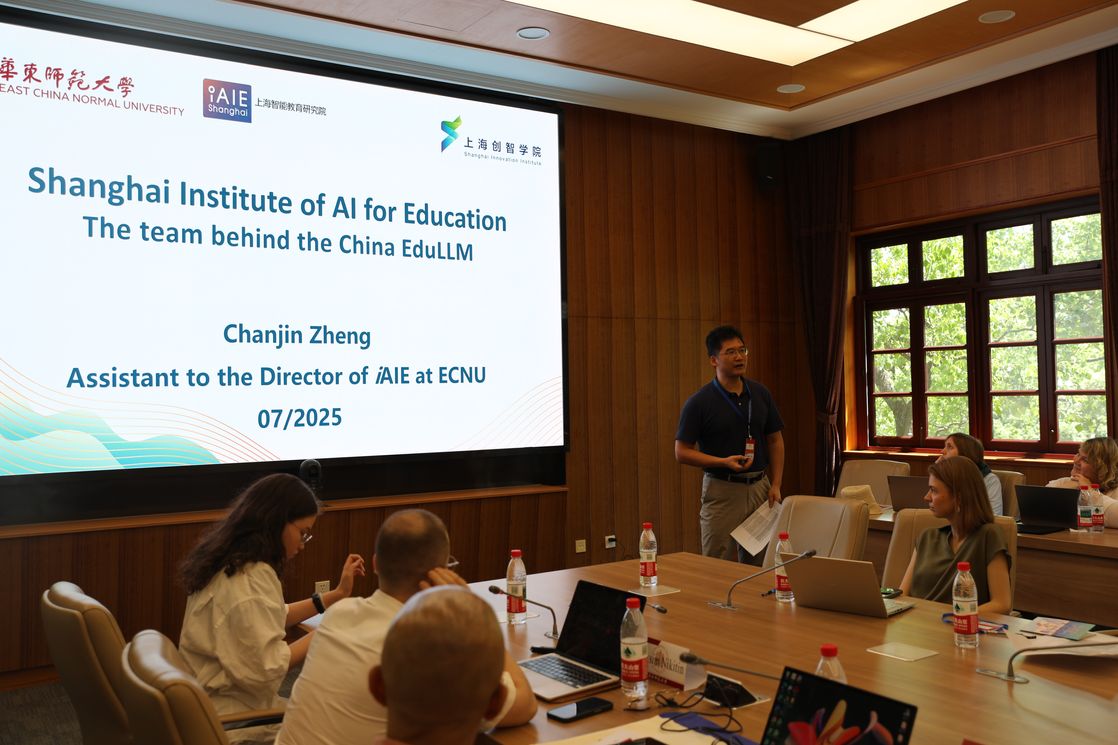‘Economic Growth Without the AI Factor Is No Longer Possible’

The International Summer Institute on AI in Education has opened in Shanghai. The event is organised by the HSE Institute of Education in partnership with East China Normal University (ECNU). More than 50 participants and key speakers from over ten countries across Asia, Europe, North and South America have gathered to discuss the use of AI technologies in education and beyond.
At the opening session of the Summer Institute, Prof. Meng Yu and Xu Fei, Vice Dean of the School of Computer Science and Technology at ECNU, emphasised that the rapid development of AI technologies demands international cooperation and interdisciplinary research. ‘We are delighted to join forces with the HSE Institute of Education and are confident that this week in Shanghai will serve as a starting point for long-term joint projects,’ said Meng Yu and Xu Fei.
Evgeniy Terentev, Director of the Institute of Education, noted that research alliances between Russian and Chinese universities are gaining strategic importance and opening up new horizons for cooperation. He also presented the findings of one of the institute's latest studies—a typology of how Russian universities are responding to generative AI, ranging from prohibition to active adoption. The analysis showed that most universities remain in a grey area, without formalising rules on the use of new technologies.
In his keynote speech, Yaroslav Kuzminov, Academic Supervisor of HSE University, outlined five key areas in which AI is already transforming higher education. First is the need to change teaching practices and educational routines. Second is the evolving role of human cognitive skills. Third is the potential to overcome academic underachievement by establishing mechanisms for personalised feedback. In addition, there are new learning formats (including game-based ones). The fifth area concerns new mechanisms of labour market integration based on real skills rather than the ability to perform routine tasks.

He also highlighted potential avenues for using AI to empower and strengthen individuals. ‘Effective and competent integration of AI in education—guided by transparent rules, encouraging students to tackle more complex tasks with AI than without it, and supported by personalised recommendations—can reduce academic failure and unlock economic potential. This in turn fosters equal opportunities for developing a competitive workforce and ensures sustainable development. We must therefore move towards future literacy and AI literacy, recognising that economic development without AI is no longer feasible—but regression is quite possible if the technology is used carelessly or ineptly,’ Yaroslav Kuzminov concluded.
Ekaterina Kruchinskaia, Senior Lecturer at the HSE Department of Higher Mathematics, supported that idea and presented the results of a survey conducted among students from ten selective (top-tier) Russian universities. The survey revealed that students most commonly use generative models for summarising texts, data analysis, and programming. However, the time savings remain minimal due to the need to verify the outputs. Moreover, usage practices are still unstructured, and students tend to use AI mainly to free up more time for rest rather than to take advantage of generative models to tackle more complex and creative tasks.

‘The risks associated with generative AI will be significantly reduced once usage practices become more institutionalised, and students are motivated not to imitate, but to improve their actual performance,’ Ekaterina Kruchinskaia concluded.
Prof. Okan Bulut of the University of Alberta (Canada) also gave a lecture on challenges of applying artificial intelligence in education. He highlighted the main difficulties in assessing AI use and discussed how the technology could be harnessed to enhance learning. Continuing the topic, Assistant Professor Mick Fanguy from the Education University of Hong Kong spoke about the evolving understanding of computer-supported collaborative learning. He explained that, whereas in the past technology was seen merely as a tool for student-to-student interaction, today AI tools themselves are becoming full participants in the learning process. Using an example of group work with a text, Assistant Professor Fanguy highlighted new risks of free-riding—cases where students use AI primarily to save time rather than to deepen collaborative engagement—and proposed a research agenda focused on the behaviour of individual participants.
The first day concluded with an academic ‘speed-dating’ session, during which participants exchanged ideas about their projects and identified the challenges they would work on over the course of the week in Shanghai. Ahead lies a programme of lectures, masterclasses, and workshops on research methods. At the end of the Summer Institute, each participant will present their research project, incorporating feedback and recommendations received from experts at the HSE Institute of Education and ECNU.
See also:
Critique of Obscure Reason: Artificial Intelligence in the Perception of Mathematicians
Mathematicians at HSE University believe that there is no need to fear losing jobs because of the widespread use of AI, while at the same time they warn against uncritical acceptance of works and projects prepared with its help. AI, however, can be a useful tool in research, creating models and processing large volumes of information.
Registration for Russian Olympiad in Artificial Intelligence 2025 Now Open
Registration for the fifth season of the Russian Olympiad in Artificial Intelligence has opened. This year, the competition has gained international status. The event is open to students in the 8–11 grades both in Russia and abroad. The winners will receive benefits when applying to Russian universities.
Global AI Trends Discussed at International Foresight Workshop at HSE University
At an international foresight workshop on artificial intelligence held at HSE University, Russian and foreign scholars discussed the trends and challenges arising from the rapid development of AI.
HSE Students Win International Olympiad in Artificial Intelligence
In the finals of the olympiad, the Russian team competed with 300 talented schoolchildren from 61 countries, including Australia, Brazil, Hungary, China, Mexico, the United Arab Emirates, Poland, Serbia, Singapore, the USA, Sweden, and Japan. The finals included team and individual rounds. In the team round, the Russian team made it into the top 10, winning a silver medal. In the individual competition, Russian schoolchildren won six gold medals, one silver, and one bronze.
‘Neural Networks Can Provide Assessments As Accurate As Humans’
Voice assistants have become part of everyday life. They can plan routes, play music and films, and answer questions. But the quality of their speech requires assessment. To address this, students of the Applied Artificial Intelligence Workshop at the HSE University and VK Engineering and Mathematics Schoolhave developed neural networks capable of evaluating speech synthesis.
HSE to Entrust Routine CPD Programme Development to AI
HSE University, together with the EdTech company CDO Global, is launching AI-based constructors to streamline the design of continuing professional development (CPD) courses. The new service will automate the preparation of teaching materials and assessment tools, significantly reducing the time and resources required of lecturers and instructional designers.
HSE University Becomes Absolute Leader in AI Alliance Ranking of Universities
TheAI Alliance Russia has announced a new ranking of Russian universities based on the quality of education in the field of AI. A total of 203 universities from 68 Russian regions participated in the ranking. HSE University was the first to join the highest A++ group.
HSE University and MTS Join Forces to Combat Deepfakes and Train AI to Create Bespoke Video Content
HSE University and MTS Web Services (MWS) have announced the launch of a series of joint research initiatives in the field of artificial intelligence technologies. These efforts aim to develop innovative solutions in cybersecurity, multimodal content generation, and big data analysis. The project’s leading institution is the HSE Tikhonov Moscow Institute of Electronics and Mathematics (HSE MIEM), under the overall coordination of the HSE AI Research Centre.
HSE University Brings Together Researchers at International AI Summer Institute in Shanghai
In early July 2025, the International Summer Institute on Artificial Intelligence in Education took place in Shanghai. It was organised by the HSE Institute of Education in cooperation with East China Normal University (ECNU). More than 50 early-career researchers and keynote speakers from nine countries—ranging from Russia and China to Canada and Singapore—gathered to share the latest findings from their work and to forge new international partnerships.
Recommender Systems: New Algorithms and Current Practices
The AI and Digital Science Institute at the HSE Faculty of Computer Science hosted a conference focused on cutting-edge recommender system technologies. In an atmosphere of active knowledge sharing among leading industry experts, participants were introduced to the latest advancements and practical solutions in recommender model development.


